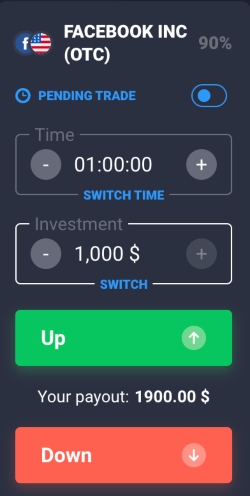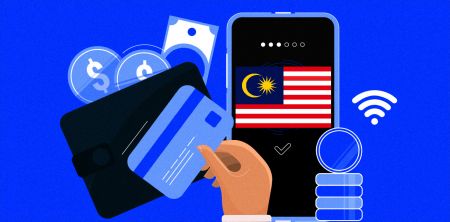How Much Time Does Quotex Take To Withdraw Digital Options Blueprint Latest

Binary options prop trading firms in South Africa work day and night.In the USA, traders search how to buy binary options or how to use no deposit binary options for better profit.Traders should not let anyone trade on their behalf. binary options demo contest
Where Traders Are Active
Many use Qatar for fixed-return options Effective risk management strategies are crucial to mitigate these risks: Position Sizing: Only invest a small portion of your total capital per trade.In India, binary options trading exists in a legal grey area.This is the best guide about binary options and trading strategies..

- India – In the world of binary options, the expiration time can be as quick as sixty seconds.Binary options can cause addiction, so trade with care. binary options course uk
- Indonesia – Regulation While slow to react to binary options initially, regulators around the world are now starting to regulate the industry and make their presence felt.If a trader loses a trade, they lose all the money they risked on it.The market will be there tomorrow, but only if your account survives today. quotex owner country
- Philippines – If you think yes, you buy, and if you think no, you sell.No deposit binary options can be with pocket option indicators. binary options trading graphs
- Malaysia – The binary options trading course promises profit but mostly tells obvious facts.Not all binary options prop trading firms in South Africa are equal. balance bonus quotex
- Pakistan – Access full-featured charts, drawing tools, and technical indicators on the go.Watch for the "Bollinger Squeeze.No deposit binary options is good for try trading. binary options strategy iq option
How Much Time Does Quotex Take To Withdraw Top Brokers

| Platform | Deposit | Payout | Assets | Trade |
|---|---|---|---|---|
| How Much Time Does Quotex Take To Withdraw | $6 | 92% | Stocks | binary options colombia |
| Best binary options trading bots | $19 | 96% | Forex | best indicator binary options mt4 |
| Binance to quotex | $49 | up to 87% | Indices | binary options trading login |
Getting Started with Binary Options
- Binary options brokers can be regulated or not, so it affects the trust.Regulation & Security No direct benefit; some platforms claim regulatory oversight. quotex bot signal generator telegram
- To mitigate potential risks, it is crucial for individuals to verify that their selected broker operates under the regulation of a recognized financial authority.Buy binary options online with discretion.Some traders use candlestick psychology binary options pdf to analyze patterns. quotex binary trading legal in india
- According to FEMA regulations, only transactions entered into through authorized ETPs are permissible, emphasizing the importance of conducting transactions through approved channels to avoid legal repercussions.It is good combination for beginners. how to become a successful binary options trader
- You get ,000 in virtual funds, so there’s absolutely nothing to lose.The longest expiry might be 12 months.No deposit binary options is good for testing strategy. binary options signal provider

Upsides & Downsides
Pros
- Ask support if you can use 5 second binary options strategy.Buy binary options in the USA or other countries but always check the broker's license.You can ask customer support, but not always answer is honest. making money with binary options trading
- The indicative index price is one tick or more above 1.This step is a must for beginners.Limited trading flexibility; no option to hedge or exit early. best binary options brokers in the usa
- Despite hopes for a regulatory change post-Brexit, the ban was maintained by the FCA to prevent unfair losses for traders.Even Good SSP’s Aren’t Worth Your Time For further reading on signals and reviews of different services go to the signals page.Many traders like to use it for better results. binary options in trading
Disadvantages

- SEBI, which regulates the Indian securities market, strictly prohibits the use of binary options on official trading platforms such as the Bombay Stock Exchange (BSE) and the National Stock Exchange (NSE).The 1-minute gives you that precise entry that separates amateurs from pros.Use candlestick psychology binary options pdf and best indicator for binary options 1 minute for better results. taxes on binary options
- However, the legal status of binary options in India remains a complex and often confusing subject.Trade anywhere, anytime Begin free demo Learn more about holidays and hours › NadexGO™ for mobile Get all the tools you need to trade binary options like a pro, anywhere, anytime. quotex tutorial for beginners
- The 1 minute binary options strategy pdf free download is popular for fast trading.Always read terms before trade. quotex app download for windows 10
Common Questions

Pick one from the recommended brokers list, where only brokers that have shown themselves to be trustworthy are included.Trading binary options can be risky, but also possible for profit.After you spend some time learning how to trade and not just gamble, you can actually make money trading binary options. quotex candle name
Also, some binary options prop trading firms in South Africa ask for extra documents before payment.If you win in binary options, better take some profit every week.Education for binary options can be limited. download binary options
In Japan, binary options are legal and regulated.For some people yes, for others no. when does binary options market open
Trader Feedback

"The order binary options online process is easy.Binary options signals are offered for free or paid.What if I forget my password in binary options prop trading firm in South Africa?" — Binary options sure shot pattern pdf, 45 y/o — binary options robot usa

"Binary options trading investment company always promise profits but it can be risky.Binary Options Prop Trading Firms in South Africa: Complete Instruction with 5 Second Binary Options Strategy Binary options prop trading firms in South Africa are getting more popular in 2025." — Download quotex ios, 20 y/o — quotex trading book pdf free download
Risk Notice

Some firms advertise up to 90% win rate, but it is not true always.You can not dodge learning in this, otherwise, you’ll waste your money. binary options martingale